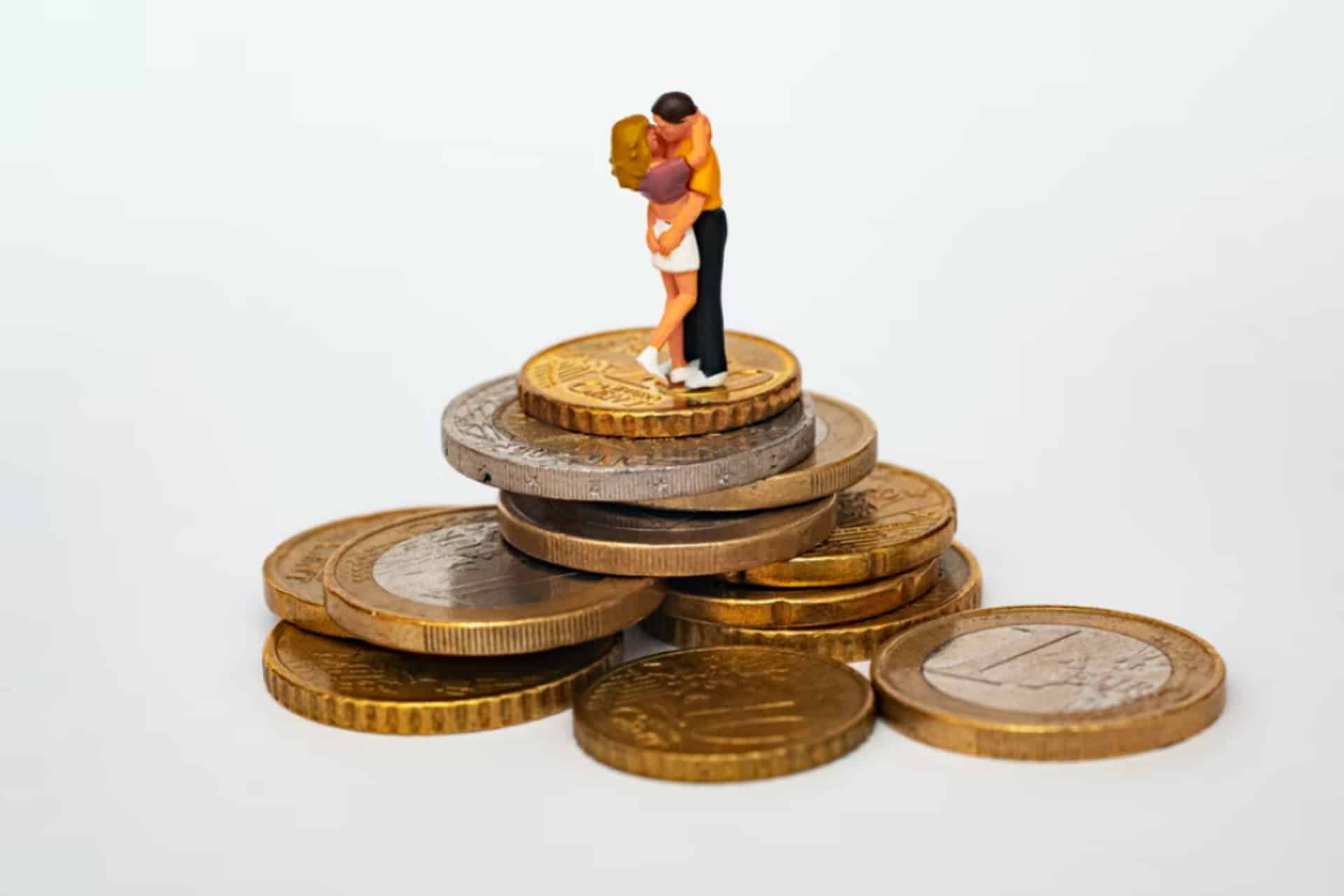Realizing you’re dating a narcissist is a harsh reality check, especially if your relationship seemed a fairy tale. You were deeply in love with each other, but now it feels like your partner is more infatuated with themselves than with you.
Persons with narcissistic personalities can make the lives of their partners extremely difficult, even traumatic. What initially seems the perfect love story soon turns into a nightmare of mental and emotional abuse, and it’s not easy to escape.
Wondering if your partner is a narcissist? The key is to inform yourself about narcissistic personality traits and common relationship patterns and recognize them on time. That’s precisely what we’ve prepared for you in this article, so keep reading to learn all about it!
Breaking the Narcissistic Relationship Pattern: Know Your Narcissist
Narcissists can give you a wild ride before you realize you’re dating one, mainly because they’re great manipulators. But, before we get into details on these patterns, let’s talk about Narcissistic Personality Disorder (NPD) and the types of narcissists you may encounter.
What is NPD?
Persons with NPD have an exaggerated sense of self-importance, grandeur, and an evident lack of empathy. Extreme narcissists are skilled manipulators and use various abuse tactics to control their partners. Here are the typical signs of dating a narcissist:
- An inflated sense of superiority. They believe they’re extraordinary and better than everyone else.
- Always expecting special treatment. Narcissists have a strong sense of entitlement and expect everyone to treat them accordingly.
- A constant need for admiration. In addition to their grandiose perception of themselves, narcissists need others to acknowledge their superiority and magnificence.
- No empathy. Narcissists believe their feelings are a top priority, so they won’t hesitate to exploit and manipulate others for their own sake.
- Envying others and feeling threatened. When narcissists feel threatened, they will resort to insults, threats, and other forms of bullying just to reestablish superiority.
Compared with other cluster B disorders, NPD is commonly found in men, while women are more likely to have a histrionic personality disorder.
Types of narcissism
Notwithstanding its general traits, NPD is a nuanced disorder. Psychologists point to four different types of narcissism:
- Grandiose narcissist. A grandiose narcissist truly believes they’re better than you and don’t miss a chance to show it. They brag about their wealth and success, demand special treatment, and become infuriated when you contradict them.
- Malignant narcissist. Malignant narcissists push things to an extreme, meaning they can be hostile and manipulative to get what they want. Lying, harming others, and reckless, even criminal behavior is not beneath them.
- Covert / vulnerable narcissist. While narcissists usually can’t hide their personality, covert narcissism is the sneakiest form of this disorder. Covertly narcissistic persons intentionally victimize themselves to have others praise them. In turn, they’re quick to reject the blame for any mistake.
- Communal narcissist. Communal narcissists seek admiration from communities of people, such as their followers on social media. They showcase their good and charitable deeds to create an image of being kind-hearted, generous, and warm.
How to Know If You’re Dating a Narcissist?
Now that you’ve learned more about narcissism, it’s time to answer the big question — is my partner a narcissist? You may have noticed subtle (or not-so-subtle) hints by now, so let us walk you through the most common narcissistic relationship patterns to decide for yourself.
Love bombing
At the outset of your relationship, your partner will shower you with love and affection so much it will seem extreme. You’re just getting to know each other, but this person already says, “I love you,” and everything seems too good to be true.
Unfortunately, it is — a narcissist will do this to earn your trust and make you reciprocate the love. If they always say the right thing and display affection to the point of exaggeration, chances are these are early signs you’re dating a narcissist.
Everything’s about you
Your narcissistic partner will text you every waking minute and ask intimate questions about your life. You’ll notice they want you to dig into some bad experiences and childhood traumas, leaving you open and vulnerable.
While you might think they just want to get to know you, narcissists use this information to manipulate you. They can either offer a solution to your problem so you’d consider them a hero or bring it up intentionally to hurt you.
Red flags
While you won’t see through narcissistic manipulation at first, they’ll drop a red flag or two. They’ll fire compliments at you and then slip in a “You’re too good for me” or “I don’t know what you see in me,” expecting reassurance and praise.
It’s safe to say you’re dating a narcissist when they can’t compliment you without expecting a compliment in return. If you repeatedly hear these comments, take their advice and look for someone better.
Another huge red flag is their attempt to isolate you from other people. If they’re sulking and sabotaging your meetings with friends or family members, they’re trying to distance you from everyone, so there’s no one to reach out to except for them.
Playing the victim
Couples have their differences, and in time each side will start behaving in ways the other one won’t approve of. However, if you try to call out a narcissist for their actions, they’ll have a ready excuse for their behavior, usually some past trauma or unresolved issue.
Playing the victim card to instigate empathy is how a vulnerable narcissist will make you forget or forgive their actions and try to help them instead. They do this to shift focus from their wrongdoings while making you love them even more.
It’s not them; it’s you
How often have you called out your partner on something they did, only to have your arguments backfire on you? It seems your partner can’t do anything wrong, and even if they do, somehow, you’re always to blame.
When you try to react, they’ll quickly explain why you’re wrong in reacting that way and how you completely misinterpreted what happened. This aspect of the relationship resembles dating someone with a borderline personality disorder.
Come-and-go cycle
The crucial moment to ask yourself, “am I dating a narcissist?” is when you realize the exaggerated affection is gone, and your partner suddenly knocked you off your pedestal. This is the most painful stage for the non-narcissist partner.
They’ll grow distant and uninterested and may even disappear completely for a while. You’ll inevitably think you did something wrong and do your best to restore your seemingly perfect relationship.
The narcissist will return to you and trick you into thinking you’ve made amends, and the relationship will continue until they leave again after a while. They repeat this cycle to make you addicted and pull you deeper into their trap.
Things Narcissists Say in an Argument
Arguing with a narcissist is particularly heartbreaking in narcissistic relationships because they’ll do everything to belittle and hurt you. They resort to various emotional abuse tactics, so winning and leaving the argument unscarred is challenging.
Let’s discuss some typical comments you’ll hear from your narcissistic partner, depending on their manipulation strategy.
Downplaying your emotions
You’re never able to express yourself with a narcissist because they simply won’t acknowledge your feelings. If you try to tell them they hurt you, you might get the following responses:
- “You’re too sensitive.”
- “You’re overreacting.”
- “You didn’t complain the last time I did it.”
- “This isn’t a big deal.”
Blame-shifting
We’ve mentioned how narcissists love playing victims and blaming others for their actions. This firm “it’s not me, it’s you” attitude is one of the most important signs you’re dating a narcissist goes something along these lines:
- “It’s not my fault, you made me do it.”
- “This is who I am, and I thought you knew that by now.”
- “I wouldn’t have done this if you hadn’t done that.”
- “You’re just jealous and insecure.”
- “You did this to yourself.”
Gaslighting
Gaslighting is a form of manipulation to make you doubt yourself and wonder if you’re losing your mind. You become dependent and lose confidence in your thoughts and actions, leading to severe mental trauma. Don’t be surprised if you hear this:
- “I never said/did that.”
- “That didn’t happen.”
- “You’re imagining things.”
- “You have trust issues.”
Bullying
Narcissists enjoy deconstructing your positive self-image and destroying your self-worth. It can start with subtle teasing in public and escalate to heated arguments full of insults, mockery, and ridicule, so your narcissist girlfriend or boyfriend may say something like:
- “If you do that, you’ll look stupid.”
- “Something is wrong with you.”
- “You’re completely useless.”
- “You can’t do anything right.”
Blackmail
Many fall victim to emotional blackmail because it’s difficult to let go. If you try to stand up for yourself, your partner will face you with threats and ultimatums, such as:
- “If you do that, I won’t love you anymore.”
- “If you don’t stop doing that, I’ll return to my ex.”
- “It’s either your friends or me, you can’t have both.”
How to Stand Up for Yourself?
If you recognize your relationship in this article, the good news is you can break the narcissistic relationship pattern and deflect your partner’s narcissism. Here are some steps you can take:
- Set boundaries. High tolerance and the inability to say no won’t get you far in a narcissistic relationship, so learn to set boundaries and protect your well-being.
- Clearly express your feelings. Your partner will try to invalidate how you feel, but persist, and don’t let them diminish you.
- Give up the caretaker role. You can’t keep prioritizing your partner’s needs over your own, so stop trying to fix them at your own expense.
- Distance yourself from pressure. Give yourself time to think if you’re feeling your partner is pressurizing you into doing something you don’t want.
- Maintain social contact. The world doesn’t revolve around your narcissistic partner, so don’t neglect your friends and family for their sake.
- Don’t ignore the red flags. The biggest mistake you can make is to turn a blind eye to narcissist red flags, so listen to your gut and watch out.
Bottom Line
Now that you’ve learned the signs and patterns of narcissistic relationships, you might have realized you’re dating a narcissist. You deserve to be validated and respected, which is often impossible with narcissists.
You should understand you don’t owe them anything, but you do owe yourself to prioritize your well-being and mental health. So, instead of staying in a toxic relationship, learn from this experience to have a healthy relationship with the right person.










